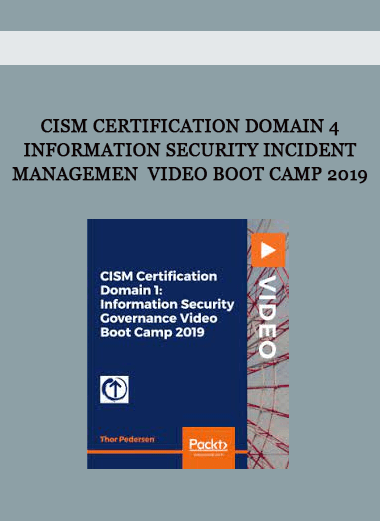Courses Infomation
Philosophy of Religion
Philosophy of Religion
**More information:
Description
Filesize : 6.70 GB
Can humans know whether the claim “God exists” is true or not? If so, how? If not, why not? Questions such as these have perplexed humans since the first moment we were capable of asking them. Now in Philosophy of Religion you can explore the questions of divine existence with the tools of epistemology, the branch of philosophy that concerns itself with what we can know.
Hide Full Description
In Professor James Hall, Chair of the Department of Philosophy at the University of Richmond, you have an unusually qualified teacher. The son of a Baptist minister (who himself later became a university professor), Professor Hall first trained at a seminary before taking his doctorate in philosophy and embarking on a teaching career nearly 40 years ago.
He announces early in the series where he stands on these issues; this is not a course with a hidden agenda, or an exercise in polemic. (And, no, we won’t let the cat out of the bag here. The story of Professor Hall’s own background and philosophical journey, which he shares with you in Lecture 3, is far too interesting for us to divulge.)
AudioFile magazine’s review of this course reports that “[Professor Hall] is amiable, humorous, clear, and interesting, and, thankfully, never pedantic.”
Make no mistake about it: This is a rigorous course in the most positive sense of the word. One of the great joys of intellect is using it, and you do so in every lecture.
At the same time, philosophy can sometimes be needlessly abstract, and Professor Hall’s ability to avoid this hazard makes this course consistently engaging. For example, he uses a memorable antacid commercial to illustrate the loss of relevance in a non sequitur argument and a classic Garry Trudeau cartoon to illustrate equivocation in language.
Clarity about Tools and Terms
The first eight lectures of the course are foundational. You establish a clear understanding of the terms “philosophy,” “religion,” “God,” and “knowledge.”
What Do We Mean When We Say “God”?
Professor Hall narrows the definition of “God” as used in this course to the God of ethical monotheism: the God of Judaism, Christianity, and Islam. This is a single God deserving of worship. One by one, each characteristic of the God of ethical monotheism is put into place:
Omnipotence: There are no limits on God’s powers.
Omniscience: There are no limits on God’s knowledge.
Omnipresence: There are no limits of distance or separation that affect God.
Omniperfection: God must be totally without moral flaw.
Aseity: God is not limited by anything external to itself—being, itself, the limit of everything else.
Arguments for God’s Existence: Ontology, Cosmology, Teleology, and Divine Encounters
The course then explores the major arguments for the existence of God, testing each with the techniques of philosophical thought.
The Ontological Argument. For this argument, famously advanced by St. Anselm and René Descartes, divine existence is entailed by the very concept of Godhood.
The Cosmological Argument. This argument, famously advanced by St. Thomas Aquinas, holds that the very existence of the world proves the existence of God, without whom there could be no first cause for all of being.
The Teleological Argument. This argument, articulated variously by the psalmist, St. Paul, and William Paley, claims that the magnificent design of the world necessarily implies the existence of a designer. Paley argued that if we walk along a beach and find a clock, we assume that a clockmaker created it.
Divine Encounter. This argument points to individuals who are said to have had direct communication with God. If their reports are true, then the other arguments are a sinful waste of time because we would have direct evidence of God.
The review and testing of these four arguments yields a “Scottish verdict”: not proved.
Arguments against God’s Existence: The Problem of Evil
After testing the arguments for God’s existence, Professor Hall reverses the burden of proof and asks: “Can humans know that God does not exist?”
You study the argument that God cannot exist because nature or wicked humans cause innocents to suffer.
And you learn the replies (theodicies) that the major religious traditions have marshaled:
There is no problem of evil because the world is perfect.
Evil is simply the absence of good.
Apparent evil exists to serve a larger good: God’s purposes are inscrutable to us, and evil is only an apparition caused by our ignorance.
Evil done by humans is a necessary consequence of free will, and autonomy given us by God. Without the opportunity for evil, there could also be no opportunity for virtue. An associated argument is that demonic forces cause evil (and this, too, may be a consequence of their freedom). In either case, God is not the cause of evil.
Those who suffer do so because they are being punished or elevated by suffering.
This portion of the course also invites a hung jury. Atheism is no more an obvious candidate for knowledge than theism is.
Tipping over the Chessboard: Faith and Transcendence
You also study approaches that dispense with logical or empirical “proof” of God.
Two lectures explore religious agnosticism: faith without (or against) evidence. You examine the arguments that proof is irrelevant to faith (and the argument that the demand for proof is a barrier to faith) and their consequences.
You also explore transcendentalist claims that God transcends the world and everything in it, and the consequences of this argument.
Playing a Different Game: Causes versus Intentions
Logical and empirical explanations, in general, search for causes and effects. A “caused effect” is not “free” to happen and, therefore, does not have “motives” or “intentions.”
But religious discourse is profoundly concerned with intentions as an explanation of life and the world.
You examine two other approaches to understanding religious claims:
Paradigms. Three lectures examine religious claims and stories as part of a form of life operating under an alternative paradigm that includes intentionality as one of its basic categories of description and explanation.
Language Games. Four lectures examine religious claims and stories as moves in one or another, possibly nondescriptive, language games, especially a game that consists of stories-told-for-a-purpose. These are stories that are not to be assessed as true or false, but as functional or dysfunctional, in terms of their life impact.
In the last lecture, you retrace the conceptual problems in ethical monotheism that urged its philosophical examination in the first place and the discoveries along the way that have led to characterizing it as we have. But, given that philosophy is an ongoing reflective enterprise, the very last point is an invitation to all who have worked through this series to carry on the reflection themselves.
Salepage : Philosophy of Religion
About Author
<author content>












![Peter Titus - Create Your Own Automated Stock Trading Robot In EXCEL! [39 Video (MP4) + 2 Document (HTML)]](https://crablib.info/wp-content/uploads/2021/02/Peter-Titus-Create-Your-Own-Automated-Stock-Trading-Robot-In-EXCEL-39-Video-MP4-2-Document-HTML.jpg)



















Reviews
There are no reviews yet.